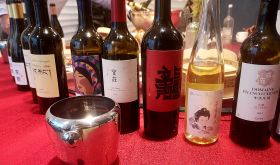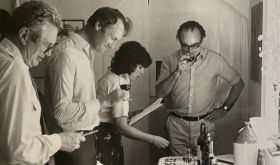The first inkling that my social progress report on South Africa published a week ago might be incomplete came when the (white) CEO of Wines of South Africa Siobhan Thompson sent an email via Jo Wehring, WOSA’s UK market manager, saying, ‘Please thank Jancis for this piece. It’s well balanced and probably one of the fairest pieces I have read in a long time.’
Over the last week I have been contacted by numerous people of colour in South African wine eager to demonstrate that things are not nearly as rosy for them as my article suggested. A common complaint was that, while Black engagement in the wine industry may have improved a bit quantitatively (the number of Black-owned wine labels, etc), qualitatively there is still a great deal to be done.
Wendy Petersen, with more than 26 years’ experience working in the industry, including for many of the big companies, is currently operations manager of the South Africa Wine Industry Transformation Unit set up in 2016 (and from whose website the picture above was taken). When I saw her copied in on an email, I assumed, wrongly, that she too was white. We had a long phone conversation last week. She told me, for instance, that the number of Black-owned wine brands and farms was not 60, as I had been told, but in fact 67. Less good news, however, is that many of them are still at a very embryonic stage of development. On a yearly basis the organisation open applications for support and funding to all Black-owned enterprises and Black-owned farms. She oversees the process whereby the applications are assessed by an independent appraisal committee and where a recommendation is made to the SAWITU board. Enterprise development support is provided from industry levies, raised by various production and export levies for the entire wine industry. Of these levies a meagre 20% of the funds is allocated towards transformation initiatives and support programmes. This year the funds could be used in support of 17 Black-owned enterprises and eight Black-owned farms.
Her, and others’, observations about the current situation for people of colour in South African wine remind me a little of how things have been for women in business generally for far too long: by dint of extremely hard work, they can get so far, but are far too rarely given real power and opportunities – although of course the problems of South Africa’s Black population have been much graver and more systemic.
Transformation is a key word in South Africa’s transition to racial equality. Elton Greeve, who runs a business designed to create opportunities for Black enterprises within the existing framework of the South African wine industry, admitted in an email, ‘transformation, which in a South African context refers to the process of changing racial, gender and economic status in the workplace to reflect the South African population demographics, is a sensitive subject'.
For Wendy Petersen, transformation is not the destination but the getting there and the changes you implement while being on that journey. She defines it as ‘a revolutionary journey that must bring about real change through empowerment and upliftment of people and communities that have not been recognised, acknowledged for their contribution and have also not been given opportunities previously'.
It is attitudes and behaviours that need to be changed and real opportunities actively created.
Over the next few weeks we hope to publish a series of personal accounts of the experiences of people of colour in the South African wine industry in the hope that these heartfelt reports might make a small contribution to the issue. If you feel you would like to write something, don’t hesitate to get in touch via editorial@jancisrobinson.com.














